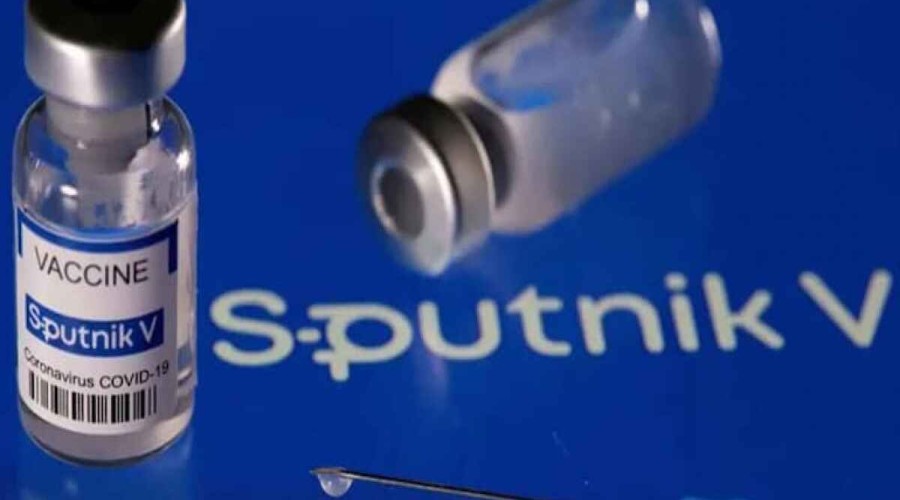Vaccinating 80% of world population in 6 months may end pandemic: Sputnik V developer
Alexander Gintsburg, head of Russia's Gamaleya Institute speaks about safety of vaccines, int'l recognition of Sputnik V

After more than two years, the coronavirus pandemic continues raging the world, evolving in a series of waves, bringing new dangerous strains.
In an interview with Anadolu Agency, Alexander Gintsburg, the developer of the Sputnik V vaccine and head of the Russian Gamaleya National Research Center, spoke about how the pandemic can be ended, why receiving COVID-19 vaccines twice a year is recommended, and why vaccines, more often than other drugs, cause mild side effects.
According to the scientist, the coronavirus pandemic may end if up to 80% of the world's population is vaccinated in a short term of no more than seven months.
To achieve this goal, it is first necessary to create a sufficient stock of vaccines and provide countries that do not produce COVID-19 antitoxins.
He noted that Russia could contribute to coping with the challenge, as it has enough capacity to produce coronavirus vaccines in big amounts.
"Russian pharmaceutical industry can produce a very significant share of those vaccines that will be in demand not only in the Russian Federation, but primarily in Africa, Southeast Asia, and other regions, which is vital to fight the pandemic that the entire humanity has been experiencing for the third year."
People vaccinated with Sputnik V are 75% protected from severe cases caused by the omicron strain, while those vaccinated with Sputnik V and revaccinated with Sputnik Light have 100% protection against hospitalization in case of contracting omicron, Gintsburg said.
If a year has passed after the last vaccination with Sputnik V, the protection against omicron decreases to 55%, he added.
"From this, we can draw a direct conclusion -- it is necessary to get revaccinated every six months, and we'll be protected. The same I can say about the delta strain," Gintsburg stressed.
The scientist pointed out that Sputnik Light can be used as a booster to Sputnik V and any other vaccines. According to him, the studies showed that revaccination with Sputnik Light is more effective than utilizing a mono-vaccine jab.
"The use of Sputnik Light as a booster is very recommended, and we have also demonstrated this in a number of studies with other vaccines, for example, with the AstraZeneca vaccine. The Russian Direct Investment Fund actively conducts these studies. So, I highly recommend using Sputnik Light to boost virtually any vaccine used today," he said.
At the same time, the team of the Gamaleya Institute, under the auspice of the Health Ministry, and with the participation of the Russian Direct Investment Fund, is developing an intranasal vaccine Sputnik, aiming to prevent contamination at all, Gintsburg continued.
"Intranasal vaccines will create a barrier for virus's penetration into a human body. Dispersing vaccine into the nasal cavity will engage a large number of additional immune cells, strengthening the general resistance of the organism," Ginstburg said.
Gintsburg explained the necessity of getting vaccinated against COVID-19, given, firstly, the absence of fundamental knowledge about the disease, and secondly, an average frequency of the appearance of new strains.
"We know the ecology of the influenza virus well, we know that every year it originates, as a rule, in Indochina, we know the ways of its spreading, natural and man-made -- airplanes and migratory birds.
"As for the coronavirus, we don't know its ecology -- how it is formed, where it is in the interepidemic period, from outbreak to outbreak, how new strains are formed, whether they are formed in the body of immuno-weakened people or the wild or domestic animals.
"The degree of the mutability of the virus is quite high, say, very high. Therefore, we do not know how often a new, fundamentally new, strong antigenic variant will appear. So far, it has appeared, we can only bend our fingers three times -- Wuhan, delta, and omicron. Three times in less than, in fact, two years. That is, with a frequency one and a half times higher than the frequency of the appearance of new variants of the influenza virus," he noted.
Without having fundamental knowledge about the virus, humankind plays a game of chess with the virus, where COVID-19 is "white" as in chess and always one step ahead, and the people will be only able to have a draw, the scientists said.
"In order to win, we need to have a lot of fundamental knowledge, so that we can anticipate those natural spots where it is formed, the mechanism of its entry into the human population, so that we can, having this fundamental information, block all attempts by a coronavirus to penetrate the human population.
"So, (as the virus appears approximately once in every six months), at this period, it is necessary to get vaccinated once in six months. If there was only one Wuhan strain, then I would tell you that those memory cells formed as a result of vaccination for the Wuhan strain will be enough for at least two years. Or maybe for three years, or maybe for life. But I can't say that now because a new strain has arrived. If a new strain has arrived, it means that the memory cells that were formed by the Wuhan strain do not work or work very poorly," he said.
